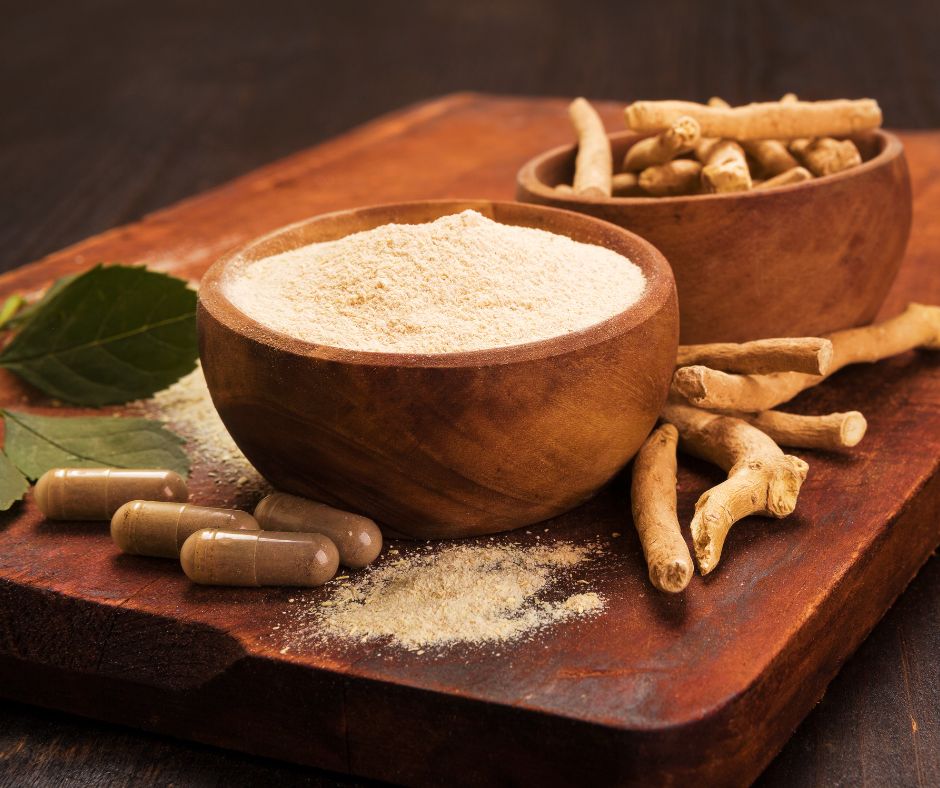People often turn to food in times of stress. And while eating a tub of chocolate ice cream isn’t the best way to handle a breakup, there may be foods that can help you combat stressful situations (with no tears required). These powerful plants are called adaptogens, and they’re growing wild across the American health food scene. We’ve gathered the information you need to know about these natural stress busters.
What are Adaptogens?
Adaptogens are active substances found in certain plants and herbs that may help improve the way your body responds to stress. Used for centuries in Chinese and Ayurvedic medicine, adaptogens are believed to offer a natural way to lower stress and anxiety and improve overall well-being. They can be added to foods or taken as an herbal supplement in teas, tinctures, pills, and powders.
There are over 70 known adaptogens, including common names like Ashwagandha, Turmeric and Ginseng. To be considered an adaptogen, substances must:
- Be non-toxic in normal amounts
- Affect the entire body’s ability to handle stress
- Return the body to an ideal balance (homeostasis)
Do Adaptogens Really Work?
More research is needed, but the science is promising. Experts believe adaptogens interact with the hypothalamic-pituitary-adrenal (HPA) axis, the major neuroendocrine system that regulates your body’s hormonal response to stress. When your body’s stress response goes into overdrive, adaptogens help replenish certain hormones while lowering others. The power of adaptogens lies in their ability to adapt to fluctuating hormone levels to keep your body in optimal balance (hence, the name adapt-ogens).
It’s important to note that adaptogens aren’t intended to replace prescribed medications or a healthy, balanced diet. Adaptogens work best when used in addition to a healthy lifestyle and, of course, with your healthcare provider’s permission.
Common Adaptogens & Their Benefits
- Ashwagandha: Also known as Indian ginseng, this adaptogen is a favorite for its stress-relieving properties. It’s often used to help alleviate symptoms of anxiety and depression. Some studies also suggest it may help lower blood sugar levels and improve insulin sensitivity, which could be beneficial for people with diabetes.
- Ginseng: Commonly refers to American Ginseng or Asian Ginseng, both of which have been shown to combat fatigue. American Ginseng may also help reduce upper respiratory infections in older adults. Korean Ginseng has been shown to improve concentration and increase low libido.
- Holy Basil (Tulsi): It’s known for its anti-inflammatory and antioxidant effects, making it a great choice for overall wellness. It can help combat stress and anxiety, improve mood, and support heart health by lowering cholesterol levels.
Who Should Take Adaptogens?
Adaptogens are a great addition to any healthy diet. If you’re feeling overwhelmed, tired, or just generally stressed out, they could help clear the brain fog and keep you feeling your best. Studies have shown promise in using adaptogens to help control blood sugar levels and boost immune health. They’re also popular among athletes for their potential to enhance stamina and reduce fatigue.
But before you rush to your nearest health food store, remember–you should always consult your healthcare provider before adding a new supplement into your diet. While adaptogens are generally safe in normal doses, they are not FDA-approved for public use and may interact with certain medications.

